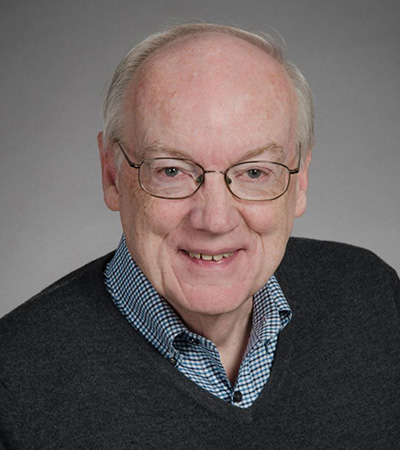In memoriam: William Catterall
William Albert Catterall, a neuroscientist and pharmacologist at the University of Washington, died February 28 at the age of 77. He was a member of the American Society for Biochemistry and Molecular Biology for more than 45 years and served on the society’s Council.

Born in Providence, Rhode Island, on Oct. 12, 1946, Catterall received a bachelor's degree in chemistry from Brown University in 1968. He concentrated his studies on physiological chemistry for his Ph.D., which he earned in 1972 from Johns Hopkins University School of Medicine. He conducted postdoctoral research under Nobel laureate Marshall Nirenberg at the National Institutes of Health, focusing on neurobiology and molecular pharmacology.
In 1977, Catterall joined the pharmacology department at the University of Washington School of Medicine, where he was on the faculty until his death; he served as department chair for 33 years, beginning in 1983. He helped co-found an undergraduate program in neurobiology at the UW College of Arts and Sciences in 2000.
Known as the “father of ion channels,” Catterall chose important scientific questions to guide his research. He studied the molecular basis of ion channel function for cardiac and neuronal excitability observed in electrophysiology. His early studies isolated and identified voltage-gated sodium and calcium channels as well as their composition and biophysical properties. He later translated many of his basic laboratory studies to preclinical findings, identifying genetic variation of ion channel genes as targets for a number of diseases. He contributed to more than 500 scientific papers on ion channels, some posthumously.
Catterall was also dedicated to the education of others, according to his colleagues. More than 150 scientists trained in his laboratory, fondly calling themselves ‘‘Catterallians’’ during lab outings to hike or ski in the area around the university. One lab alumna, Lori Isom, wrote that she was “forever grateful to Bill for investing in our training and impacting our scientific careers as a role model.”
In a YouTube video series “Science Communication Lab,” Catterall described some of his groundbreaking work to identify the voltage sensors, the ion-conducting pore and the inactivation gate of sodium channels.
Among Catterall’s awards and honors were his induction as a fellow of the American Association for the Advancement of Science in 2010, the Bristol–Myers Squibb Award for Distinguished Achievement in Neuroscience Research and the Robert Ruffolo Lifetime Achievement Award from the American Society for Pharmacology and Experimental Therapeutics.
An ASBMB member since 1977, Catterall served on the ASBMB council from 1994 to 1997 and on the Journal of Biological Chemistry editorial board in 1983. He was also a member of the National Academy of Sciences, National Academy of Medicine, Academia Europaea and the Royal Society.
Catterall remained an active researcher until his death. He died while attending the Sixth International Calcium Channel Conference on Boracay in the Philippines, where he was presenting work on the regulation of cardiac calcium channels.
He is survived by his wife, Tina; his daughter, Elizabeth; and his son, Douglas.
Read more about Bill Catterall’s legacy in a 2015 JBC spotlight.
Enjoy reading ASBMB Today?
Become a member to receive the print edition four times a year and the digital edition monthly.
Learn moreGet the latest from ASBMB Today
Enter your email address, and we’ll send you a weekly email with recent articles, interviews and more.
Latest in People
People highlights or most popular articles

From humble beginnings to unlocking lysosomal secrets
Monther Abu–Remaileh will receive the ASBMB’s 2026 Walter A. Shaw Young Investigator Award in Lipid Research at the ASBMB Annual Meeting, March 7-10 in Washington, D.C.

Chemistry meets biology to thwart parasites
Margaret Phillips will receive the Alice and C. C. Wang Award in Molecular Parasitology at the ASBMB Annual Meeting, March 7-10 in Washington, D.C.

ASBMB announces 2026 JBC/Tabor awardees
The seven awardees are first authors of outstanding papers published in 2025 in the Journal of Biological Chemistry.

Decoding how bacteria flip host’s molecular switches
Kim Orth will receive the Earl and Thressa Stadtman Distinguished Scientists Award at the ASBMB Annual Meeting, March 7–10, just outside of Washington, D.C.

Thiam elected to EMBO
He was recognized during the EMBO Members’ Meeting in Heidelberg, Germany, in October.

The timekeepers of proteostasis
Learn about the cover of the winter 2026 ASBMB Today issue, illustrated by ASBMB member Megan Mitchem.

